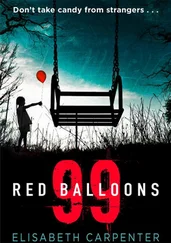When he was around three years old, he spent the days in a special needs day-care center, because I had to go back to work. I found a part-time position in a museum and was completely content there even though what I really wanted to do was research and excavations. I was responsible for the museum’s collections, and if nothing else, it gave me the opportunity to use my organizational skills. The job was a healthy kind of normality, a kind of plaster, filling in all the cracks and holes in my life.
No one could predict what would happen with the boy when the time came, but around twelve, thirteen, he entered puberty. Suddenly, pimples covered his increasingly swollen nose, and the smell of sweat that surrounded him was acrid, like that of a feral animal. He also started growing rapidly. His feet, his hands, his whole body grew. I felt he was growing away from me; it became very complicated to be his mother. I was quickly transformed into a hollow mother cocoon that had become too small and stayed on the floor with his toys. I felt insufficient, but I knew I had to keep going. He was completely helpless, and his dependency didn’t decrease when he became sexually mature. Rather the opposite. Suddenly, powerful urges that his half-sleeping body would never be able to satisfy raged through his body with full force, yet out of his reach.
It happened so fast. One day, he was a head taller than I. But when he walked, I had to support him. Crutches and walkers were too complicated for his uncontrollable body. Sitting still so much of the time and taking so many medications had also made him bulky; he was incredibly heavy and I barely had the strength to hold him upright. He could pronounce about ten words that I understood, and he had a series of gestures and sounds I’d learned to interpret. Sometimes he knew when he had to go to the bathroom, but most of the time, he didn’t notice the signals his body gave him, didn’t know what to do with them. It was as if a vast no-man’s-land separated his consciousness from his body. He was lonely somehow, inside his own body. When he was younger, I’d been both his consciousness and his body. Now everything was becoming much more difficult. I couldn’t assist him enough; he’d been trapped by his corporeal limitations.
I know they would have found a place for him in a home for the severely handicapped if only I had asked. But I never did; I never even inquired about the possibility. The boy and I had a pact. He was my lot in this world, my duty. He was assigned to me, and I to him.
Mom sits on the couch, her face patchy red from being beaten, her arms and hands scratched. She stares vacantly before her. Her frizzy hair looks like foam around her narrow, tired face.
On the floor is a mess of books, knickknacks, potted plants, pillows, clothes, and toys. The window curtains are torn into shreds.
The only sound in the apartment is that of children crying. The twin boys, who haven’t yet learned how to stay away and keep silent, have been spanked with the rug beater. Next to Mom on the couch is my older sister. She puts her arm around Mom’s stiff shoulders, and cries softly. I’m sitting on the floor with my little sister on my lap. I am not crying.
It is evening. Dad has been visiting the “Exception,” as he calls the place.
“Have you finally learned what a strayed wife’s home looks like?” his thin lips ask, still trembling with rage, before he leaves us.
I go out to the kitchen. He has opened all the cupboards and swept all the glass and china from the shelves. First, I gather up anything that’s not broken or just slightly chipped and put it on the table. Then I sweep the floor and put the shards in a piece of newspaper. Finally, I mop until no trace of broken glass remains on the floor.
A cold insight woke me early this morning, long before dawn. I suddenly realized it would be completely crazy to travel to Mervas. I must have been living in some kind of dreamworld since I got Kosti’s letter. I now feel ashamed of my own childishness, my madness. If those thoughts of Mervas appear again, I’m going to call the psychiatric ward and ask them to lock me up for a while.
Kosti is calling me again. Once more, he wants to throw me off course. But this time I’m going to keep going in my own tracks; this time I’m not going to listen to his siren calls. I am old. I feel my life will soon be over. I don’t have the strength to live anymore; I’ve already been through too much. For years, I’ve struggled to accept the truth of that fact.
Growing old has been much harder than I’d imagined. Since I’ve never cared very much about the way I look, the way other women do, I didn’t think I’d care particularly about things like wrinkles, getting a potbelly, and gray hair. But I did. It was devastating. My body fell apart and suddenly became my great source of sorrow. It became a wound that wouldn’t heal, but instead grew larger and deeper. To undress and sink into the bathtub became painful; I tried not to let my gaze linger anywhere on my body, but I could still see, of course. The fine, pathetic pubic hair, which insisted on growing on my thighs instead of covering the mound, disgusted me. So too did the patchy, blue-veined legs. It was all too sad. Like being forced to watch your house fall into decay without being able to do anything about it. Like watching a plant wither. At once, my whole life seemed so wasted, as if I’d neglected to live it while I could. It hurt me so much to realize this. It caused me so much agony that I started hiding like a young girl when I had to undress. The very air wasn’t allowed to see me, neither was the light of day, barely even darkness — I had to hide my nudity at all costs. For some time, things went so far I started neglecting my hygiene; it’s quite difficult to keep clean without removing your clothes, so I hardly ever washed. Nor did I buy any new clothes, and I let my hair grow unkempt. Finally, I could sense that I smelled bad. I could smell it in my bed, and when I returned to the apartment after being out, my smell greeted me, stale and sickly sweet, putrefied. That’s when I made up my mind. I was supposed to be old. I was allowed to grow old. It was natural and obvious and nothing to grieve over, I just had to adjust to the new order of things. The threads of life had simply grown thinner, the weave had become sparse and brittle, and that’s what was visible in my body, that’s what my body was trying to tell me. The notion was almost liberating. I decided to allow life to run its course and told myself to stop hoping and fantasizing, to stop dreaming about change, mercy, and love — all those things that human beings cling to and refuse to let go. Now I was going to devote myself to concluding things, to folding up and sealing the past.
In the last year, that’s how I’ve adjusted my thinking. In some ways, I have had to conquer myself. But I’m taking care of myself again. I buy clothes, take baths, and cut my nails. You have to be able to tolerate your own life. Day after day, you have to carry yourself through it.
Kosti’s letter disturbed me. For the second time, he’s trying to disrupt my sense of order. Now I know. There’s nothing for me in Mervas. And I don’t want to see Kosti again. As far as I see it, he could just as well be dead. I mean, I haven’t known whether he was alive or not for the past fifteen, twenty years. He probably doesn’t know any more about my life after we parted than I do of his. He doesn’t know about the boy’s death. Most likely, he hasn’t a clue about the repercussions our love affair had on my life. How it threw me off course and into chaos.
When life has become too torturous, when it has been infused with pain the way water can be infused with salt, you no longer want anyone to witness it. You don’t want to be seen. No, true suffering doesn’t want to be witnessed. It hurts too much. That’s why I’m content being as lonely as I am. No one can see me. I’m glad that ever since the boy’s death, the contact with my sister has been limited to a few phone calls a year. I don’t want Kosti to see me. Only idiots think it’s necessary to drag everything to the surface for show. Many things can only heal in darkness, out of sight. If they can ever heal at all.
Читать дальше












